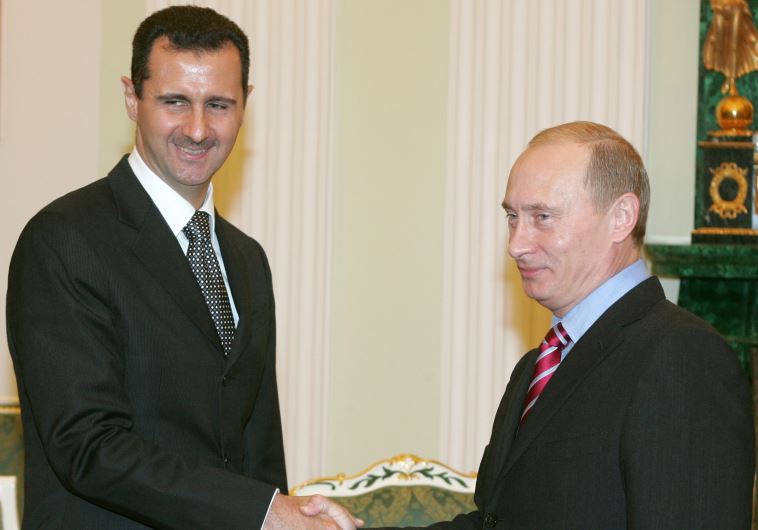When the enemy is a friend’s friend
Hanin Ghaddar/Now Lebanon/December 23/15
Hezbollah’s fears beyond the killing of Samir Kuntar
The assassination of Samir Kuntar earlier this week was a major slap on the face for Hezbollah and Iran — not because Kuntar is dead but because their support base in Lebanon and the region now understand their complicated alliance with Russia. Accordingly, Iran’s increasing vulnerability in Syria will be gradually exposed and this will further shake any remaining trust Shiites in the region have for Iran and Hezbollah. This week, Shiites — mainly in Lebanon — face the bitter fact that Russia allowed Israel to assassinate Kuntar. Hezbollah leader Hassan Nasrallah’s speech following Kuntar’s funeral was beyond lame. He spoke about Kuntar for four cold minutes before proceeding to lash out for over 20 minutes about Shiites in Nigeria and the US sanctions against the Party of God.
Nasrallah is actually more concerned about three issues:
First, US sanctions against Hezbollah were recently increased. Some economic analysts in Lebanon say that the purpose of these sanctions is to make sure Hezbollah does not receive much-needed money after the sanctions against Iran are lifted, and Hezbollah’s Sayyed is certainly concerned about that prospect. Without money to pay for social services, fighters and their families, he and his party are doomed. Today, pro-Hezbollah papers and media leaked news that entailed a clear threat to the banks in Lebanon. Second, Hezbollah is more crippled than ever with the new and complicated alliances over Syria and Iraq. Nasrallah already knows that retaliation against Israel that could start another war is out of the question, yet some kind of retaliation is needed — something like the one following Jihad Mughniyeh’s assassination last year. But the Iran deal, followed by the new alliance between Russia and Iran on Syria, and the ongoing coordination between Russia and Israel, of which Kuntar’s assassination is an example, makes any Hezbollah retaliation far more complicated.
The third issue is Russia’s role in Syria. The Iranian and Hezbollah leaderships know that Russia cannot be trusted: its priority is to save Assad’s regime, not to protect Iran’s interests. In fact, what Iran wants in Syria differs substantially from what Russia wants, but the support base wasn’t aware of these discrepancies. Kuntar’s death has exposed the ugly truth about Russia’s coordination with Israel and how serious it is when it comes to targeting Hezbollah’s commanders and assets. Hezbollah cannot retaliate and now the support base understands this ugly truth. For these supporters, Iran is supposed to stand above all. Iran is not in Syria to make compromises over its authority and control, and it is certainly not supposed to accept an ally coordinating with an enemy. The assassination of Samir Kuntar revealed two things to the Shiite support base: that Iran is actually weak and is compromising in Syria, and that the region has moved beyond the Israeli/Arab conflict, and Hezbollah now has different priorities.
For Hezbollah, the most unsettling part of this military coordination between Russia and Israel is that it allows Israel to fly freely over Syria as long as it coordinates with Russia. Also, Russia knows the logistic and military details of Hezbollah and the Iranian Revolutionary Guards in Syria. It’s extremely worrying to Hezbollah that Russia is sharing these details with Israel under this arrangement. Meanwhile, Iran is not benefiting from the Russian intervention. Rather, it is jeopardizing its plans both on military and diplomatic levels, which will eventually jeopardize its ambitions in the region.
As far as Russia is concerned, Iran, its interests, and its commanders can go to hell. Russia is in Syria for Russia, not for Iran. When Iran and the US signed the deal earlier this year, it was sold to the Shiite support base as a victory. ‘We brought the US to the table,’ they said. ‘We still have our nuclear program,’ they stated. ‘We will never be America’s allies.’ It wasn’t easy to satisfy everybody, but at least Iran didn’t lose in this deal. With the Russian intervention in Syria, however, Iran is actually losing territory, control and future prospects.
It will be extremely hard to sell this one.
**Hanin Ghaddar is the managing editor of NOW and a nonresident fellow at the Atlantic Council. She tweets @haningdr



















